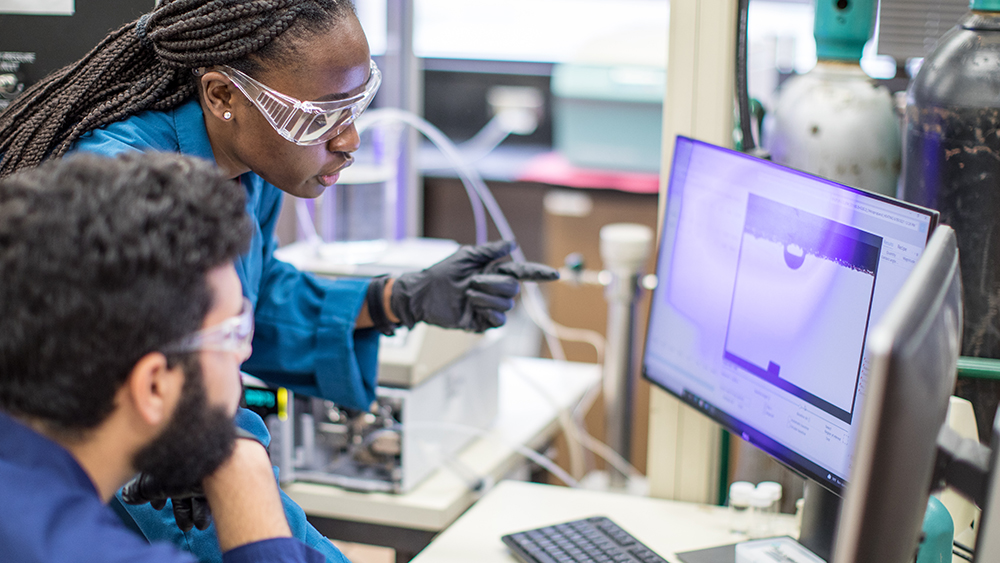
Datagration Solutions Inc. recently donated software to the Harold Vance Department of Petroleum Engineering at Texas A&M University. Former student George W. Voneiff '83 coordinated the contribution, which will provide current students and instructors with a cutting-edge educational experience.
Voneiff, a senior vice president of Datagration, is making the company’s premiere software package, PetroVisor, available to the department at no charge. The donation also includes training for relevant faculty instructors and two completion optimization datasets for teaching and training. The contribution is worth more than $250,000 and will be renewed every year.
A long-time supporter of Texas A&M, Voneiff and his wife, Joan, value education. They fund professorships and other support for those instructing the next generation of petroleum engineers. Voneiff is a professor of practice in the department, donating his time to teach graduate and undergraduate students the concepts of project evaluation and management, and probabilistic petroleum economics and reserves.
This will put the Texas A&M petroleum department at the forefront of advanced data analytics and sophisticated evaluations.
According to Datagration, data is an asset increasingly seen as a form of currency for oil and gas companies, and there is a competitive advantage for those that merge this type of economic thinking into their operation and business strategies.
Voneiff understands this advantage, having nearly 40 years of experience in oil and gas exploration and production. He is an expert in data analytics and economics, and is extremely well versed in risk management, uncertainty analysis, and completion and development optimization in unconventional reservoirs. He said that PetroVisor is able to integrate disparate data, quickly perform sophisticated multidiscipline analytics, and create visualizations. This can greatly enhance students’ understanding of the data-to-decision quality control process, workflow requirements and impact on operating, capital and overall financial efficiencies.
“For graduate students and their professors, PetroVisor can also help with research through greater data utility, data analytics, machine-learning applications and application-oriented economic evaluations,” Voneiff said.
The petroleum engineering department at Texas A&M is the first to use PetroVisor in higher-education classrooms. Datagration is training professors on how to teach with the program and apply the datasets in classroom instruction. The department can also tailor the application to its specific needs. While the software comes with prebuilt workflows and visualizations, faculty and students can edit them or even create their own for specific courses and research projects. This versatility is a key factor in the program’s educational value.
“PetroVisor applies petroleum economics to optimize a variety of problems — artificial lift, general operations, acquisition and divestiture, and development optimization — that typically don't have sophisticated economics applied to them,” said Voneiff.
Voneiff explained that the software enhances a decision-maker's ability to take good technical work and use that as the basis for good economic analysis. The automation capabilities of the program mean students will spend less time gleaning information from the datasets to make graphs and tables, and spend more time deciding on an approach to a problem, analyzing the workflows and interpreting the results to see if they were on the right track.
“This will put the Texas A&M petroleum department at the forefront of advanced data analytics and sophisticated evaluations,” said Voneiff. “PetroVisor shortens evaluation timelines from years or months down to weeks or days without sacrificing technical accuracy. It is a tool and skill set that gives our students a meaningful advantage in the job and research markets.”
“We are very appreciative of Professor Voneiff and Datagration’s gift and service,” said Dr. Akhil Datta-Gupta, University Distinguished Professor and interim head of the petroleum department. “The donation allows our students to differentiate themselves when entering the job marketplace and allows our faculty to stay current on state-of-the-art technologies employed in the software.”